Procious Juvenile Law Lawyer, West Virginia
Not enough matches for Procious Juvenile Law lawyer.
Below are all Procious Criminal lawyers.
Claude S. Smith, III
✓ VERIFIEDAccident & Injury, Personal Injury, Divorce & Family Law, Criminal
Whether you have suffered an accident while on the job or suffered an injury during a car accident or semi truck accident, The Law Offices of Claude S... (more)
Ronald N. Walters
✓ VERIFIEDAccident & Injury, Criminal, Bankruptcy & Debt, Family Law, Trusts
Ron has, over the last decade, assisted clients by planning and designing settlements to address future needs and ensure any government benefits are p... (more)
Traci L. Wiley
Criminal, Colleges & Universities, Commercial Insurance, Construction Contracts
Status: In Good Standing
Todd M. Sponseller
Criminal, Deceptive Trade Practices, Employment, Environmental Law
Status: In Good Standing
Christine D. Wallace
Adoption, Alimony & Spousal Support, Animal Bite, Criminal
Status: In Good Standing
Jacqueline Ann Hallinan
Bad Faith Insurance, Civil Rights, Criminal, DUI-DWI
Status: In Good Standing
FREE CONSULTATION
CONTACT


